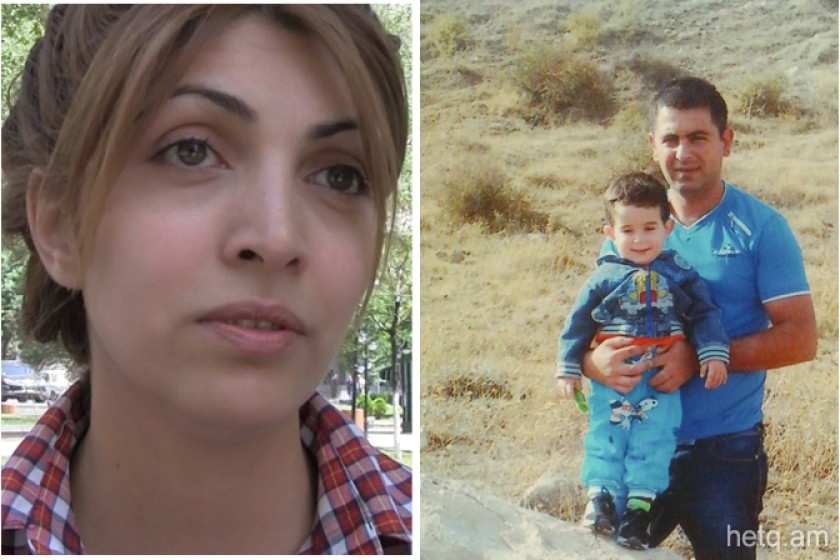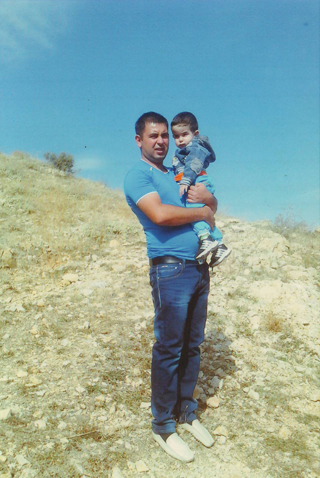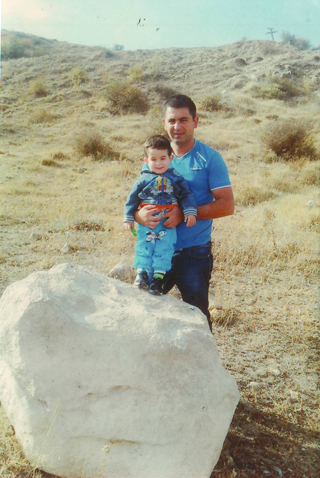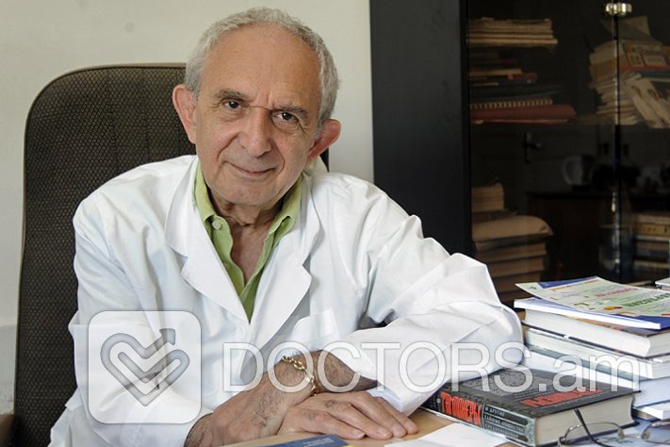
Physicians Off the Hook: No One Held Accountable for Death of 27 Year-Old Tsolak
Ani Hovhannisyan, Tatev Khachatryan
On April 3, 2013, when Arevik Zohrabyan accompanied her 27 year-old husband Tsolak, complaining of a stomach ache, to the Masis Medical Center she never thought that it would be the last time she would see him alive.
For two years, the case bounced around the courts before being dropped.
Totally disillusioned with the justice system, Mrs. Zohrabyan recently talked to Hetq about the case and her final hope that those guilty will be brought to account.
Tsolak Mkrtchyan was admitted to the hospital by Gevorg Grigoryan, head of surgery.
“He was given a dose of Papaverine and felt good,” says Arevik. “He came home and went to sleep. At three that night the aches returned. I wanted to accompany him to the hospital but he refused, saying he’d go and come back soon. They gave him a shot of Baralgetas. That morning at six I found out he passed away.”
 |
 |
Tsolak died from anaphylactic shock as a result of the Baralgetas shot. Arevik says that the doctors claim that her husband failed to mention that he had an allergy. Arevik doesn’t believe their version of events “The first time he went I asked him if he told the doctors about his allergy. He said he had.”
Anaphylactic Shock: Why They Didn’t Save Tsolak
Anaphylactic Shock is a serious allergic reaction that is rapid in onset and may cause death. It typically causes a number of symptoms including an itchy rash, throat swelling, and low blood pressure. Common causes include insect bites and stings, foods, and medications.
Both Armenian and international literature notes that Epinephrine (adrenaline) is the primary treatment for anaphylaxis with no absolute contraindication to its use.
They Didn’t Give Tsolak Adrenaline Until Later
A forensic examination revealed that Tsolak Mkrtchyan wasn’t given adrenaline until much later. “The doctors claimed that there was no need to administer adrenaline earlier,” says Arevik, believing that the examining committee is out to protect Dr. Grigoryan.
Messy Criminal Case and Opposing Medical Conclusions
Arevik Zohrabyan’s attorney Inessa Petrosyan remembers how difficult it was to get a criminal case of medical malpractice launched against Gevorg Grigoryan.
A forensic examination found that Tsolak Mkrtchyan’s death was brought on by the Baralgin (the same Baralgetas) injection. Later, another examination was ordered to see whether the patient’s anaphylactic shock could have been dealt with. The conclusion reached by the examining committee. Lead by Armenia’s Chief Allergist Dr. Spartak Ghambarov, was that it was possible to bring the patient out of the shock had adrenaline been administered in time.

Dr. Spartak Ghambarov
Another forensic exam was ordered during the preliminary court case. This time, the team was headed by anesthesiologist Irina Malkhasyan. The conclusion reached by them was completely different in that administering adrenaline wouldn’t have made any difference.
It was based on this conclusion that the Masis Investigative Unit dropped the malpractice case. Arevik Zohrabyan appealed and a third forensics committee was ordered. This third committee was also headed by Irina Malkhasyan.
When asked as to why Dr. Ghambarov wasn’t selected to head the committee, Malkhasyan replied that he was out of the country. The committee again found no grounds for malpractice. Arevik Zohrabyan again appealed but the lower court rejected to hear the appeal last December.
Disillusioned, Arevik Zohrabyan decided to stop battling.
She says that Dr. Gevorg Grigoryan has continued to work at the Masis Medical Center ever since that fateful day in 2013 when her husband died while under his care.

Irina Malkhasyan
Hetq telephoned Irina Malkhasyan to get her side of the story. She said she was too busy to respond but noted that in 99% of such cases the doctor isn’t at fault. Malkhasyan claimed that uninformed reporters and the public at large are guilty of spreading baseless aspersions.
Hetq was able to talk to Davit Melkonyan, another member of the committee, who said that committee members sign a document in advance allowing them to be held accountable if they act improperly. Melkonyan argued that different committees could reach different conclusions, how.
When Tsolak Mkrtchyan was given the injection the staff physician- anesthesiologist wasn’t on site. Lawyer Petrosyan says that the hospital routine was that if a problem arose an anesthesiologist would be called in.
While Melkonyan says he cannot question the actions of the investigative bodies, he agrees that the Masis hospital has problems.
“For a hospital not to have a round-the-clock anesthesiologist is an issue for the higher-ups - the ministry. You can’t anesthetize a patient in the afternoon and then leave the patient and go home. It’s not the patients fault. There are provinces with only one anesthesiologist,” says Melkonyan.
Dr. Gevorg Grigoryan: “Throw all the dirt you have on me”
Dr. Grigoryan refused to speak to us about the Tsolak Mkrtchyan case.
At first he charged reporters with taking sides and then argued that lawyers could, for the right price, get anyone off the hook.
“If I paid money I’d be exonerated in a flash. But the other said paid money so the lawyers are taking their side,” said Dr. Grigoryan.
“Write whatever you want about me. Throw all the dirt you have on me,” he said and hung up the phone.
 Videos
Videos Photos
Photos
Write a comment